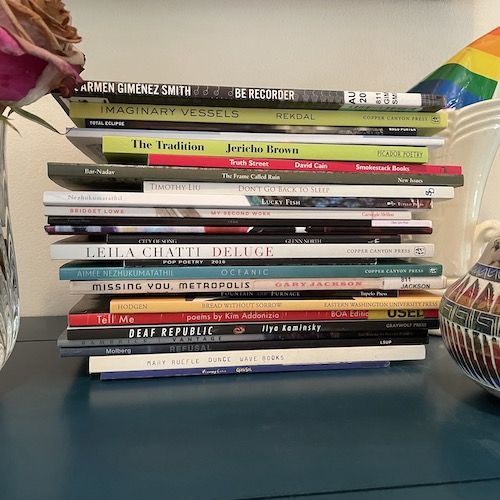Technical writing is low-stress, but not the most exciting work in the world. I edited forms, training documents, internal and external communications, and basically brought corporate style and grammar to documentation. My team was small and underappreciated. The healthcare company I worked for cared less about patients than it did about profits. When the opportunity to leave Corporate America and pursue an MFA in Creative Writing presented itself, I jumped at the chance. Fast forward two and a half years to December 2020. My thesis defense was approaching. To follow through on the deal my wife and I made when I started my MFA, I began applying for jobs. I sent out my resume to nonprofits, publishing houses, small publishers, and a few other employers that excited me. I heard nothing. Knowing it was the bulk of my corporate experience, I also applied for technical writing jobs. Wouldn’t you know, it was another healthcare company seeking a technical writer that came calling. Before that first interview, I was nervous. Not for the interview itself, but at the prospect of potentially heading back into a similar position I’d left. I didn’t want to be doing more work that didn’t engage me just to make someone else wealthy. But I needed a job, to get back out there and pay the bills. I landed the gig and started the strange process of learning a new company, coworkers, and systems all virtually. As part of the process, I was assigned another technical writer to review my work. When I revealed that in addition to writing fiction, I’m a poet, his eyes lit up. So was he. And we weren’t the only ones. He invited me to a Microsoft Teams chat channel where we talk about poetry. Then he put out a poetry challenge. It was something about the post-holiday lull. Within the week, the three of us in the chat all drafted and shared our poems based on the challenge. Admittedly, I’d been struggling to write poetry outside of school poetry workshops. I found daily writing on my newest book easy, but the mental gear-shift required for poetry wasn’t happening. But now, I had a forum. A prompt. And a pair of coworkers, relative strangers to me at the time, with nothing but encouragement. Barely more than a first draft, it felt strange to share it. Unlike most of my poetry, it had nothing to do with politics or growing up intersex. But this was still work a work environment. These were coworkers, not close friends or the anything-goes environment of a literary journal or workshop. And it was delightfully freeing and satisfying. in winter’s less festive cousin, mid- January. Tiny lights twinkle off, though the shuffle of Instacart, keep the pantry full and the pandemic at bay. Splotches of snow, leftovers from a winter feast, vitiligo the lawns, awaiting the next blustering meal to come. The three of us rotated, coming up with challenges and prompts for poetry. Sometimes it was to use a specific word or phrase. Sometimes to write about a particular feeling. An image of a birdhouse in a field. Specific poetry forms like the ghazal or sonnet. In the deep end of learning a new style guide and the myriad systems we use to do our jobs, I was buoyed by these poetic sojourns. We’ve shared dozens of poems with each other. We’ve given each other book suggestions, particularly during August and The Sealey Challenge. Just last month, a friend of mine from grad school joined our technical writing team. She, too, is a poet, and has been welcomed into our little group. As if it couldn’t get any better. Almost a year into the new job, it doesn’t feel like last time. The company is more focused on patient outcomes than my previous employer. There are eight teams of technical writers and an obvious investment in good writing. My team members and boss are cool. I’m not miserable. And that little poetry group gives me life and actually gets me excited to log into work each day. That’s priceless.
